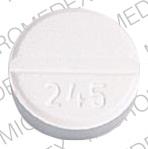Chlorothiazide Interactions
There are 471 drugs known to interact with chlorothiazide, along with 11 disease interactions, and 2 alcohol/food interactions. Of the total drug interactions, 14 are major, 428 are moderate, and 29 are minor.
- View all 471 medications that may interact with chlorothiazide
- View chlorothiazide alcohol/food interactions (2)
- View chlorothiazide disease interactions (11)
Most frequently checked interactions
View interaction reports for chlorothiazide and the medicines listed below.
- Advair Diskus (fluticasone / salmeterol)
- Aleve (naproxen)
- Aspir 81 (aspirin)
- Aspirin Low Strength (aspirin)
- Ativan (lorazepam)
- Augmentin (amoxicillin / clavulanate)
- Benadryl (diphenhydramine)
- Co-trimoxazole (sulfamethoxazole / trimethoprim)
- Coumadin (warfarin)
- Demerol (meperidine)
- Eliquis (apixaban)
- Fish Oil (omega-3 polyunsaturated fatty acids)
- Iron Sulfate (ferrous sulfate)
- Lasix (furosemide)
- Lipitor (atorvastatin)
- Lyrica (pregabalin)
- Metoprolol Succinate ER (metoprolol)
- MiraLAX (polyethylene glycol 3350)
- Mucinex (guaifenesin)
- Nexium (esomeprazole)
- Prevacid (lansoprazole)
- Prilosec (omeprazole)
- ProAir HFA (albuterol)
- Symbicort (budesonide / formoterol)
- Synthroid (levothyroxine)
- Tylenol (acetaminophen)
- Vitamin C (ascorbic acid)
- Vitamin D3 (cholecalciferol)
- Xopenex (levalbuterol)
- Zofran (ondansetron)
Chlorothiazide alcohol/food interactions
There are 2 alcohol/food interactions with chlorothiazide.
Chlorothiazide disease interactions
There are 11 disease interactions with chlorothiazide which include:
- anuria
- electrolyte losses
- liver disease
- lupus erythematosus
- renal function disorders
- asthma
- diabetes
- hyperlipidemia
- hyperparathyroidism
- hyperuricemia
- thyroid function tests
More about chlorothiazide
- chlorothiazide consumer information
- Compare alternatives
- Pricing & coupons
- Reviews (1)
- Drug images
- Side effects
- Dosage information
- During pregnancy
- Drug class: thiazide diuretics
- Breastfeeding
- En español
Related treatment guides
Drug Interaction Classification
| Highly clinically significant. Avoid combinations; the risk of the interaction outweighs the benefit. | |
| Moderately clinically significant. Usually avoid combinations; use it only under special circumstances. | |
| Minimally clinically significant. Minimize risk; assess risk and consider an alternative drug, take steps to circumvent the interaction risk and/or institute a monitoring plan. | |
| No interaction information available. |
See also:
Further information
Always consult your healthcare provider to ensure the information displayed on this page applies to your personal circumstances.


